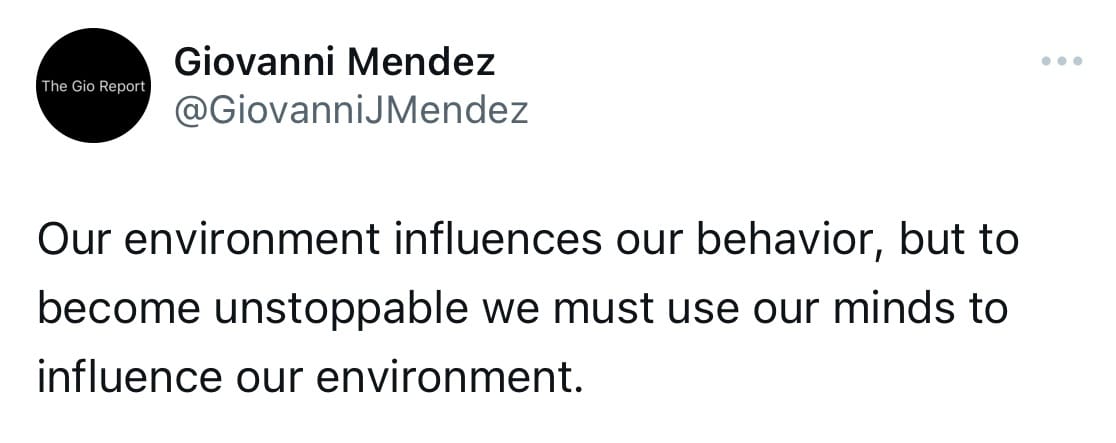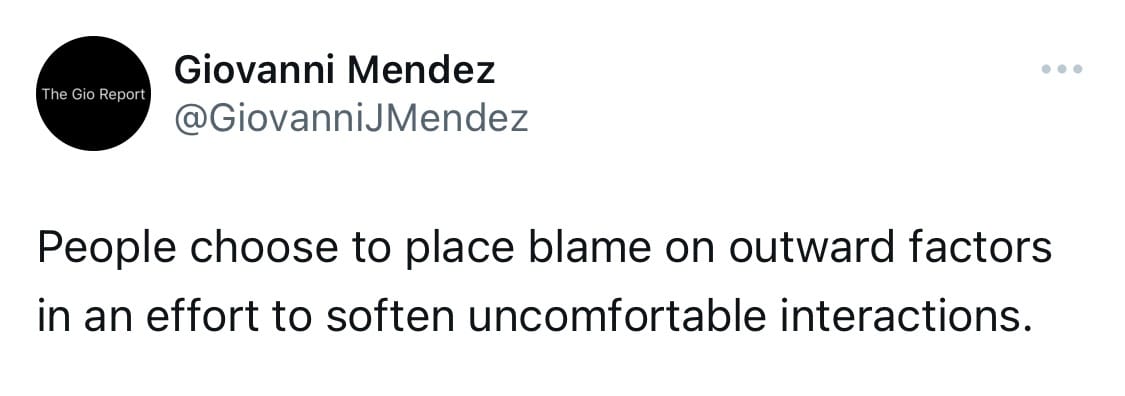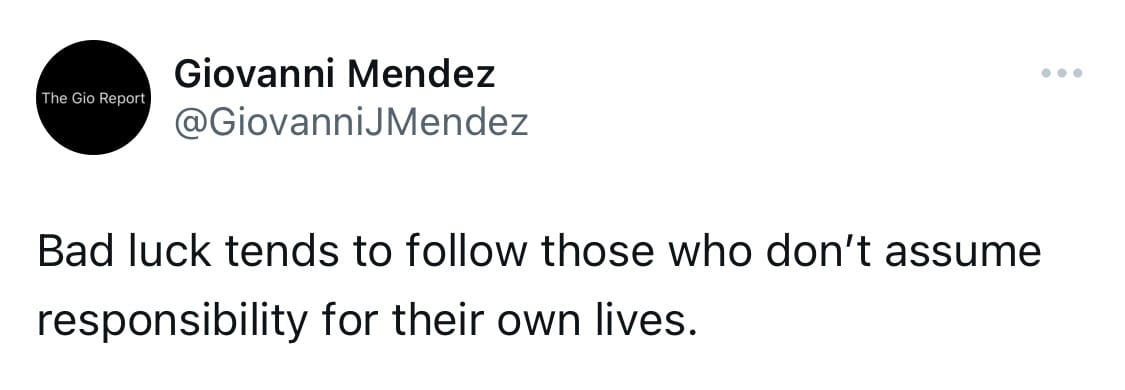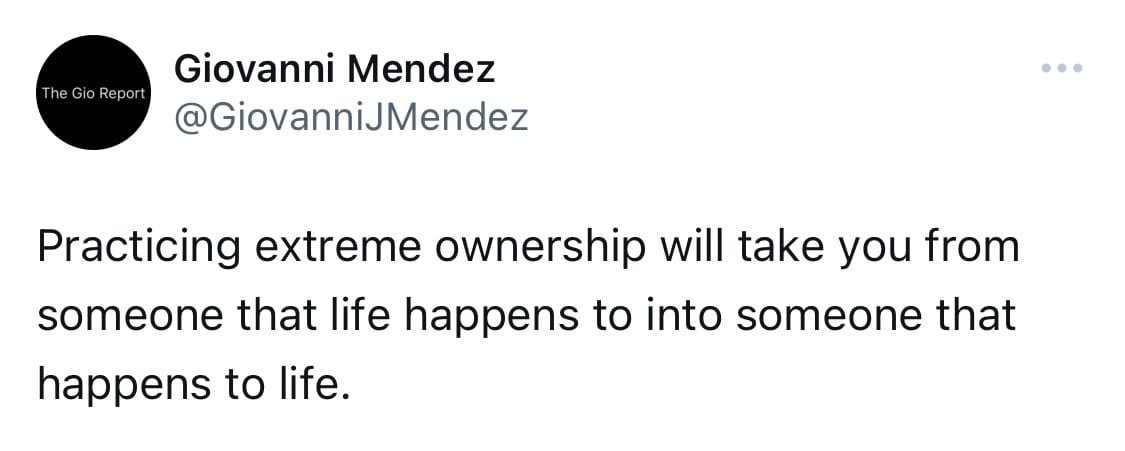- Freedom Letter
- Posts
- Honesty Will Make You Unstoppable (Here’s How)
Honesty Will Make You Unstoppable (Here’s How)

You will begin to believe your own lies and put yourself at a serious disadvantage.
A person who is honest with themself is able to accurately determine their strengths and weaknesses.
The one who believes their own lies risks stumbling off a cliff.
They say they know where they're going when in reality they’re lost.
It’s one thing to lie to others, but to lie to yourself can have serious consequences.
True humility is embracing your limitations.
Staying humble keeps you open to new information that can potentially save your life (remember that cliff from earlier).
Those who don't dig deep enough (by not being honest with themselves) rarely discover the truth.
If they do, it's usually because life forces them out of their own delusions by shoving reality in their face.
But even then, it may not be enough to motivate lasting change.

Those who audit their thoughts and actions always find ways to improve.
The compound effect of this incremental growth is made clear, as the individual is thrusted light years ahead of their peers.
To practice extreme self-honesty, you must expand your belief of what it means to lie.
One simple example of a lie (which will upset some) is claiming you're late due to traffic.
Although traffic may be a contributing factor, it isn't the main reason you’re late.
It's a way of blaming something that’s not in your immediate control.
It’s an attempt to avoid accountability.

The honest reality is:
• You were late because you didn’t account for potential traffic.
• You were late because you didn't start getting ready early enough.
• You were late because of your poor planning.
Got a flat tire?
You were late because you didn't plan for a flat tire.
Does this seem extreme?
That’s what it takes to achieve extreme results.
But really, how extreme is it to plan for a flat tire when you've scored the interview of a lifetime?
Or how about this…
Imagine after years of blood, sweat, and tears you finally planned your dream trip to Disney World (hey, it’s a dream for some…).
You’re meeting up with a group of childhood friends, all of whom are traveling from different states (no easy feat to coordinate).
You worked hard to save up the money and managed to get the time off work.
Your flight leaves at 5am.
That means you need to get to the airport by 3am (at least that’s what our parents told us).
If you miss your flight, you don’t know when, or if:
• You’ll be able to go again
• Your friends will be able to coordinate another trip
• Or if you’ll even get your money back (team no trip insurance ✋)
My hope is you would have thought of all the possible scenarios that might make you miss your flight.
But let’s say you end up missing it.
The most commonly used excuse is, “I missed my flight because my alarm clock didn’t go off.”
How do you imagine your longtime friends would feel after hearing this (knowing how much they love you and were looking forward to sharing this experience with you)?
Your excuse may not be a total lie (maybe your alarm clock didn’t go off).
But the reason you missed your flight is not your clock’s fault.
It’s your fault (or at least your responsibility).
It was your job to get to the airport on time.
But it happened, so let’s move on.
What can you do to prevent this from happening again in the future?
• You could set a very loud alarm clock across the bedroom (forcing you out of bed).
• You could set another one on your bedside table.
• You could add 20 more alarms (we all know that person) on your phone, making sure it’s plugged in and charging.
• You could make sure your phone is NOT on silent and agree with your friends to call each other at a certain time.
• You could even go over to your neighbors house and ask them to ring your doorbell at 2am (too far?).
This is what taking extreme ownership over your life looks like.
Misleading people with partial truths is one thing, but don’t underestimate the effects this can have on your subconscious mind (and by default, your behavior).
If you truly believe it’s your alarm's responsibility to make sure you’re on time, you will never take it upon yourself to find solutions (why would you if it’s not your fault?).
You’ll resort to blaming your alarm (each and every time).
You’ll be the person that always has an outward reason for falling short in life, and worse, believe your reasons are true (none of which will hold yourself accountable).
They will be centered around things not in your control.
Let’s say the the world was actually conspiring against you.
Shouldn’t you keep that to yourself?
Wouldn’t constantly telling people just how unlucky you are make them keep their distance (rather than your intended goal of deflecting blame)?

• They don’t accept their current reality
• They don’t take ownership over their lives
• And they rarely do the necessary work to create positive change
We don’t always get to choose our life circumstances, but we 100% get to choose how we handle them.
The decision to complain about the hand you’ve been dealt (without seeking solutions) is an option, but the results won’t be favorable.
So my two cents?
Try being deeply honest with yourself and work to improve a bit each day.

You will become a force in the world that people can’t help but notice.
And those who continue to lie to themselves will suffer the consequences of living within a distorted reality.
They will forever be victims of circumstance.
You, however, will take agency over the things you can control (and find solutions for the things you can’t).
You won't live life seeking to deflect your responsibilities.
And best of all:
This mental shift will seep into every facet of your life.
You will be the type of person who takes accountability for their actions, learns why something occurred, and adapts so it doesn't happen again.
💡 Thought Exercise:
Which person do you trust and respect more?
1. The person who always has an excuse for why something went wrong?
OR
2. The person who accepts full responsibility for their outcomes (even if outside factors played a role).
Choose which person you’d like to be.